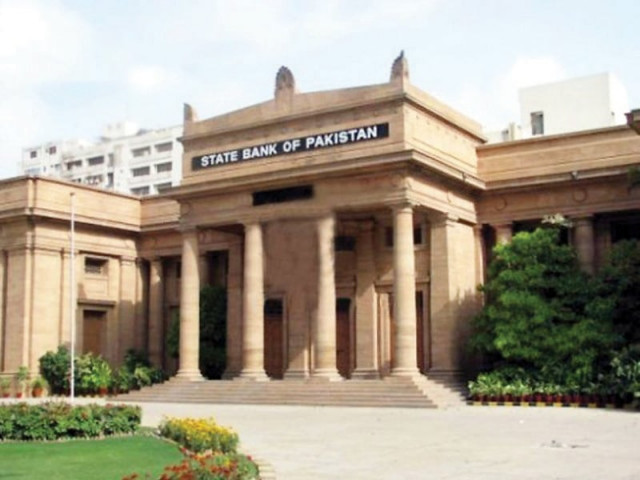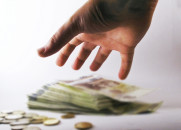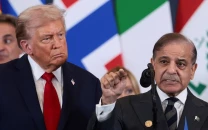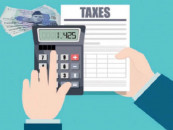SBP set to raise policy rate to rein in inflation
Analysts expect rate to go up to 17% ahead of IMF programme revival

Pakistan's central bank is highly expected to jack up its key policy rate by 100 basis points (bps) to 17% at the monetary policy review on Monday (Jan 23) ahead of the revival of International Monetary Fund (IMF) loan programme.
"Implementation of the loan programme is feared to push inflation reading to multi-decade highs at around 30% and the policy rate remains a tool with the central bank to control the inflation," Pak-Kuwait Investment Company Head of Research Samiullah Tariq said while talking to The Express Tribune.
The country recorded a 49-year high inflation at 27.3% in August 2022. It came in at 24.5% in December 2022 and is likely to increase to 27% in January 2023 amid high food prices.
The government has shown its willingness to take all the pre-requisite measures to win back the stalled lending programme. The required steps include increase in electricity and gas tariffs, rise in rates of taxes including the petroleum development levy and 17% sales tax on petroleum products, as well as more depreciation of the rupee against the US dollar.
The government is likely to implement the IMF programme in February, which will pave the way for the release of next loan tranche.
The expected increase in policy rate will make bank financing further expensive. It may reduce the demand for foreign financing for imports and help arrest the fast decline in foreign exchange reserves, which have depleted to critically low levels at $4.6 billion.
The revival of the IMF loan programme will help attract $3-4 billion from the multilateral and bilateral creditors including the IMF and stabilise the foreign exchange reserves over short term.
"The policy rate hike will impact mostly the government, as it has been the largest borrower from commercial banks since July 2019. The rate hike will jack up interest payments to banks," said Arif Habib Limited Head of Research Tahir Abbas.
The primary objective of the increase in policy rate is to discourage private sector borrowing because any increase in currency in circulation pushes inflation higher.
"This time around the rate hike is unlikely to impact private sector borrowing much. Its demand for bank credit has already dried up amid a 23-year high policy rate of 16%," he said.
The SBP has cumulatively increased its policy rate by 900 bps in the past 16 months.
The two experts said the central bank had kept its primary focus on controlling inflation. Economic growth has become its second priority.
They were of the view that the country could not achieve a sustainable high growth without controlling inflation.
The economic growth is projected to drop to just 1.25-1.5% in the current fiscal year due to an acute financial crisis. The country achieved 6% growth in the previous year.
Abbas anticipated that the central bank would increase the key policy rate by 100 basis points on Monday. Tariq, however, expected a rate hike of 150 basis points.
Topline Research said in a commentary "we think that the policy rate will go up by 100 basis points in the upcoming monetary policy. However, if inflation does not fall and external issues persist, further rate hikes cannot be ruled out."
The research house conducted a poll of market participants to assess their views on the monetary policy and their key macro estimates.
A majority of the participants (74%) expect the policy rate to rise by 100-200 bps. Of these, 37% expect a 100bps increase, 18% anticipate a 150bps rise and 19% see a 200bps increase.
Of the remaining participants, 2% expect more than 200bps increase, 5% anticipate a 50bps increase whereas 18% expect no change and only 2% see some rate cut.
The SBP has forecast average inflation of 21-23% in FY23 whereas "our inflation estimate is around 26%."
Most of the survey participants anticipated that the rupee-dollar exchange rate would be in the range of Rs240-260 by June 2023, it said.
Around 13% expect it to be around Rs260-270 while 11% see it above Rs270.
On the other hand, 11% expect it to be in the range of Rs230-240 while only 3% expect it to stand around Rs220-230.



















COMMENTS
Comments are moderated and generally will be posted if they are on-topic and not abusive.
For more information, please see our Comments FAQ